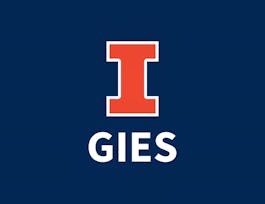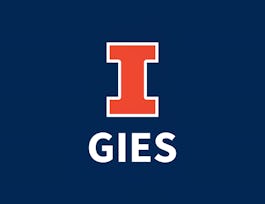In this course, you will explore how to use accounting to allocate resources and incentivize manager and employee behaviors with these resources. You will also learn how financial and non-financial accounting information facilitates strategic performance measurement and how to integrate this information to continuously improve strategy.


Managerial Accounting: Tools for Facilitating and Guiding Business Decisions
This course is part of Value Chain Management Specialization
Taught in English
Some content may not be translated

Instructor: Gary Hecht, Ph.D.
30,451 already enrolled
Included with 
Course
(606 reviews)
92%
Skills you'll gain
Details to know

Add to your LinkedIn profile
21 quizzes
Course
(606 reviews)
92%
See how employees at top companies are mastering in-demand skills

Build your subject-matter expertise
- Learn new concepts from industry experts
- Gain a foundational understanding of a subject or tool
- Develop job-relevant skills with hands-on projects
- Earn a shareable career certificate


Earn a career certificate
Add this credential to your LinkedIn profile, resume, or CV
Share it on social media and in your performance review

There are 4 modules in this course
In this module, you will become familiar with the course, your instructor, your classmates, and our learning environment. Decisions are at the heart of all organizations. In this module, you will also explore the nature and role of relevant information in common business decisions, and how such information facilitates these decisions and helps managers and employees avoid common pitfalls. You will also consider how the financial perspective adopted by accountants complements other, qualitative perspectives.
What's included
18 videos9 readings6 quizzes1 peer review
After establishing goals, setting targets, and the budget, upper management uses variance analysis to compare, assess, and investigate differences between actual and expected performance. In this module, you will learn how upper management uses variance analysis to motivate and monitor managers and employees, how to perform variance analysis on any aspect of the organization, and ultimately understand the power of this important tool for planning and control.
What's included
13 videos2 readings5 quizzes1 peer review
Accountants help implement, communicate, and evolve organizational strategy via the information they provide to owners, managers, and employees. Specifically, they help plan, monitor, and control decisions via the performance measurement, evaluation, and compensation system. In this module, you will explore many aspects of this important system, including decentralization, financial and non-financial performance measurement, strategic performance measurement systems, and subjective performance evaluation.
What's included
13 videos2 readings4 quizzes
At the heart of an organization’s planning and control function is its budget. In this module, you will explore the purpose of budgeting, the role of managers and employees in budgeting, and related implications. You will also develop an organization’s budget, ultimately understanding the iterative nature among the budget’s key components: the operations, financing, and capital investments budgets.
What's included
25 videos4 readings6 quizzes
Instructor

Recommended if you're interested in Finance

Technical University of Munich (TUM)

University of Illinois at Urbana-Champaign

University of Illinois at Urbana-Champaign

Technical University of Munich (TUM)
Get a head start on your degree
This course is part of the following degree programs offered by University of Illinois at Urbana-Champaign. If you are admitted and enroll, your coursework can count toward your degree learning and your progress can transfer with you.
Why people choose Coursera for their career




Learner reviews
Showing 3 of 606
606 reviews
- 5 stars
77.72%
- 4 stars
16.66%
- 3 stars
2.80%
- 2 stars
0.99%
- 1 star
1.81%
New to Finance? Start here.

Open new doors with Coursera Plus
Unlimited access to 7,000+ world-class courses, hands-on projects, and job-ready certificate programs - all included in your subscription
Advance your career with an online degree
Earn a degree from world-class universities - 100% online
Join over 3,400 global companies that choose Coursera for Business
Upskill your employees to excel in the digital economy
Frequently asked questions
Access to lectures and assignments depends on your type of enrollment. If you take a course in audit mode, you will be able to see most course materials for free. To access graded assignments and to earn a Certificate, you will need to purchase the Certificate experience, during or after your audit. If you don't see the audit option:
The course may not offer an audit option. You can try a Free Trial instead, or apply for Financial Aid.
The course may offer 'Full Course, No Certificate' instead. This option lets you see all course materials, submit required assessments, and get a final grade. This also means that you will not be able to purchase a Certificate experience.
When you enroll in the course, you get access to all of the courses in the Specialization, and you earn a certificate when you complete the work. Your electronic Certificate will be added to your Accomplishments page - from there, you can print your Certificate or add it to your LinkedIn profile. If you only want to read and view the course content, you can audit the course for free.
If you subscribed, you get a 7-day free trial during which you can cancel at no penalty. After that, we don’t give refunds, but you can cancel your subscription at any time. See our full refund policy.

